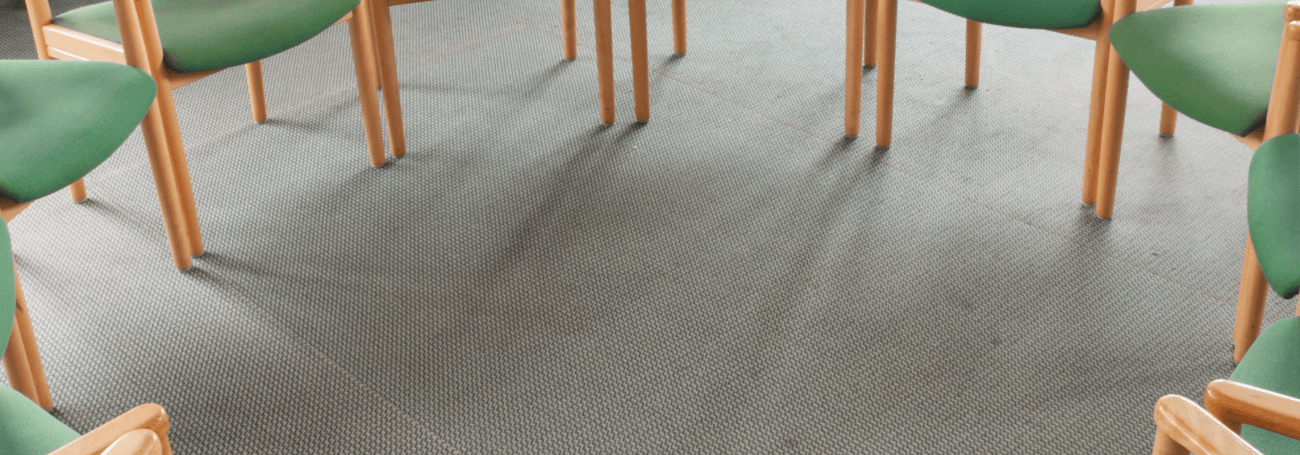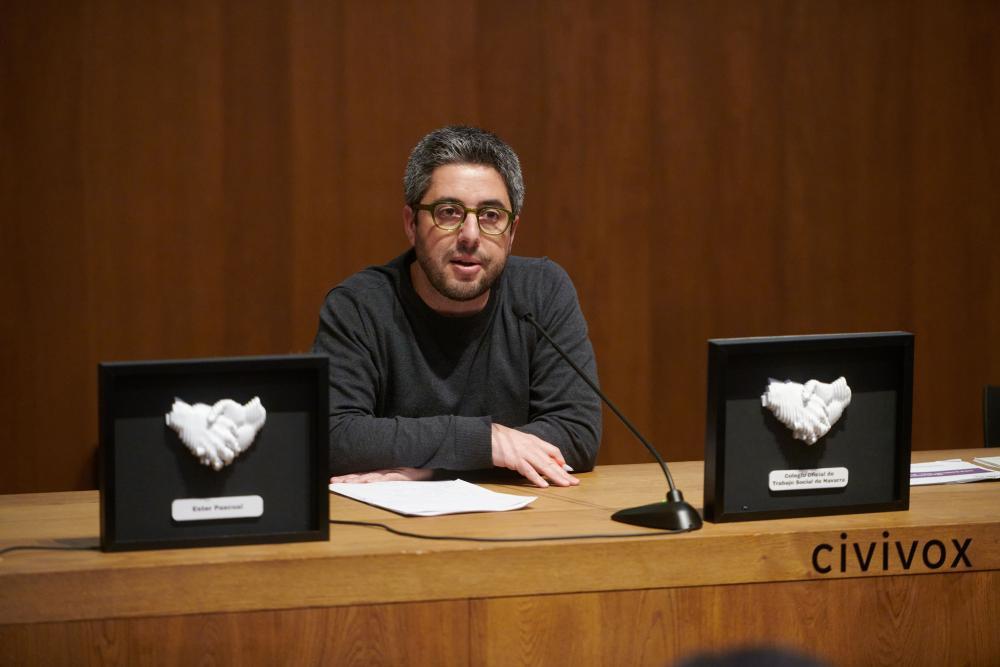
Read this article in Spanish / (Lee este artículo en español) »

Navarra has been one of the most fruitful regions in Spain (and Europe) in terms of restorative justice developments during the past twenty years. Now, with the approval of the new Ley Foral of restorative justice, mediation, and community restorative practices, and the celebration of the upcoming 12th International EFRJ Seminar in Pamplona, Navarra is again on the cutting edge. This new law stands as a pioneering element at the Spanish policy level, being the only specific restorative justice legislation in the country, while the celebration of the Seminar contributes to situating Pamplona and Navarra at the centre of this year’s main European restorative justice event.
This blog piece is part of a series of interviews done with three professionals working at different levels of the restorative justice field to delve a bit more into how the context has changed recently in Navarra, as well as what they expect from the upcoming EFRJ event in Pamplona. Check the interview with Eduardo Santos, the Minister of Justice of Navarra.
Jorge Ollero Perán is the Director of the Restorative Justice Service of Navarra (Servicio de Ejecución Penal y Justicia Restaurativa del Gobierno de Navarra) and, as some of you may know, also a board member of the EFRJ. He has a background in law, and has worked in different positions in the prison field. This experience made him acknowledge that a punitive criminal justice can hardly satisfy anyone’s needs, growing his interest in the restorative justice movement as he had experiences such as the restorative encounters between former ETA members and victims’ relatives.
Jorge Ollero was interviewed by Renata Soares Ramos Falcão (Communication Intern at the European Forum for Restorative Justice) and Pablo Romero Seseña (Policy Intern at the European Forum for Restorative Justice).

What made you interested in restorative justice?
After studying law, I started working in prison. There, I saw the enormous suffering that confinement entails for prisoners and their families and, at the same time, I saw that the victims also remained full of pain, without the imprisonment of their perpetrators helping to alleviate their suffering. Therefore, I thought, we have a system that generates a lot of suffering and does not satisfy anyone, neither the victims nor those who have harmed them. There have to be alternatives; there has to be another way of doing things. And then I learned about the experience of restorative meetings between ETA members and their victims, and I said to myself, ‘This is it! If it can work in such serious crimes, we should also be able to use it in a general way in the most frequent crimes: robberies, injuries, etc., and perhaps build an alternative to the punitive system and thus reduce the use of prison.’
Since then, I have not stopped studying and working to promote restorative justice, with the idea that it serves to reduce suffering in our societies, both the one caused by crimes and the one produced by the state response to those crimes.
Why Navarra? What can the EFRJ Community can expect in terms of restorative justice by coming to Pamplona?
The people who attend the seminar in Navarra will find a community that is very enthusiastic and involved in restorative justice. It is a society with a long tradition of self-management of its own conflicts, maintaining high levels of self-government and the agreed search for solutions to social problems. Navarrese men and women form a citizenry that is highly committed and involved with feminism, environmentalism, interculturality and, of course, with a non-punitive, democratic and participatory model of justice. In fact, it was the civil society of Navarra that initiated one of the first restorative justice pilot projects in Spain and, now, with the impulse of the Ley Foral of restorative justice, mediation, and community restorative practices, the Government of Navarra has turned that pilot project into a full-fledged public policy.
What was the previous context regarding restorative justice in Navarra and how can the new law improve it?
In Spain, the only legal mention of restorative justice is made in the Victim Statute (transposition of the European Directive on Victims’ Rights). This law says that the victims ‘will be able to access the restorative justice services available,’ but it does not establish the obligation that these services exist. This means that in most of the country, there are no publicly guaranteed restorative justice services. In Navarra, this service was offered, but there was no legal basis to guarantee it or to establish the principles of quality and performance. Now, with the Law, there is a right for all victims and perpetrators to access this service and, in addition, this service has to work with high quality and high training standards.
Another aspect that seems important to me is that the Law indicates that restorative justice must be guided by certain principles that, in line with the Recommendation of the Council of Europe, are participation, reparation, responsibility, reintegration of the perpetrators, protection of victims, equity and the social and community approach. This emphasis on the community seems to me one of the most interesting contributions of the Law, since it tries to overcome the individualistic methodological paradigm that is part of the penal system and often permeates restorative interventions.
After the approval of the law, what’s next?
The Law is very ambitious in its development; so we still have a lot of work to do. A Strategic Plan and a Quality Plan must be designed. These plans will indicate concrete measures, among which, without a doubt, will be external evaluation and supervision, as well as the analysis of statistical data and the promotion and dissemination to the public.
How do you plan to move from law to day-to-day practice? How do you think this implementation process of the new Ley Foral will be?
The main work now is to work on the aforementioned plans with the direct participation of the most relevant institutions and entities that are the main participants in the development of restorative justice in Navarra: the the Navarra Association of Mediation (ANAME), the Bar Associations, Psychologists and Social Workers, and, of course, with judges and prosecutors. For this we are going to create a working group within the Navarra Justice Council, which is the consultative body for collaboration, study, debate, participation and advice, in order to promote the improvement of the quality of the public justice service in the Autonomous Community of Navarra.
In addition, we are lucky that during the EFRJ Seminar, two workshops will be organised, coordinated by Ian Marder, from the University of Maynooth, in which training will be given on how to develop strategic plans, using Navarra as a case study.
In your opinion, what would you say are the most interesting aspects of the new law?
I believe that, apart from what I have already stated, another interesting issue of the Law is the inclusion of community restorative practices, which we legally define as ‘tools for the prevention and resolution of non-judicial conflicts, as well as the promotion of social cohesion, which seek to generate collective conditions of trust, respect and care, so that conflicts that may arise are managed spontaneously by the community in their initial stages.’
As we understand it, it is the first time in Europe and perhaps in the world that community restorative practices are regulated and with this Law we support their development by conducting training courses and subsidising social entities.
What could be other reflections on policy work from regional to national to international and vice versa?
I believe it is necessary to point out that the Foral Law does not make any type of change at the procedural level, that is, it does not regulate the effects that restorative justice can have on penalties or on the interruption of the process (probation), since this is an exclusive competence of the State. Without this regulation, which currently does not exist in Spain, the development of restorative justice will be somewhat limited, but without the involvement of the Autonomous Communities it cannot work either. In other words, it is necessary on the one hand for the Autonomous Communities to guarantee the provision of quality restorative justice services and on the other for the State to regulate the effects that restorative justice has on the criminal process. In this sense, Navarra has already done its part and we are optimistic because we know that the Government of Spain is committed to restorative justice and it is possible that we will see positive procedural changes in the future.
As for the international level, it is very important. The advances that have occurred in Spain have happened largely thanks to the initiatives of the European Union and the Council of Europe. In this sense, the 2018 Recommendation and the recent Venice Declaration have been our points of reference when preparing the Law, and we know how relevant the work of the EFRJ has been in bringing these highly advanced texts forward.
Regarding the upcoming EFRJ Seminar in Pamplona, why is it interesting for you to host a EFRJ event in Navarra?
For Navarra, it is an honour and a great satisfaction to host the EFRJ Seminar. It will allow us to learn a lot from our European colleagues (and beyond), who will surely inspire us with innovative practices, interesting debates and challenges that we may not have even considered ourselves yet. When you talk to people who come from different places, you learn to put your successes and difficulties into perspective and you manage to find imaginative ways to build a better world. A restorative Navarra makes no sense if it is not in relation to the world, in exchange, in integration and in connection with other races and cultures. So, we are very much looking forward to receiving colleagues who visit us and we hope that we can also inspire them with our practices and reflections.
Finally, what invitation/message would you share with our network to invite them to come to Pamplona?
Well, in addition to participating in an event in which they will be able to listen to very interesting presentations and participate in workshops on the latest innovations in restorative justice, they will enjoy a city like Pamplona that is beautiful, full of history and nature and, above all, full of welcoming and fun people.
Jorge Ollero Péran was interviewed by Renata Soares Ramos Falcão (Communication Intern at the European Forum for Restorative Justice) and Pablo Romero Seseña (Policy Intern at the European Forum for Restorative Justice).
Published on 25 May 2023.